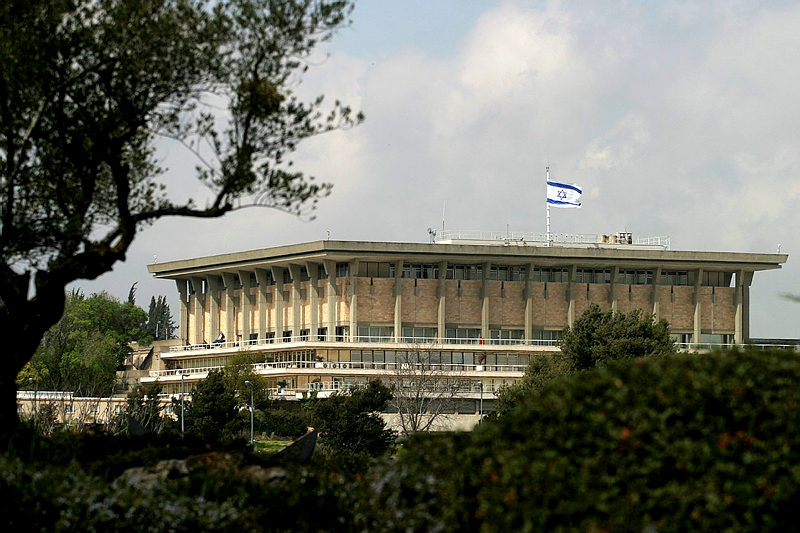The Electoral System: Strengthen the Foundations before Fixing the Roof
Recently, the focus of calls for political reform in Israel has shifted from electoral reform to increasing the power of the prime minister. In this op-ed, Dr. Ofer Kenig, head of IDI's Political Reform project, attributes the instability, high minister turnover, and bloated cabinets of the Israeli government to the weakness of the ruling party and stresses the need for electoral reform, especially the adoption of a regional-proportional system.

Once, when people in Israel spoke about the need for political reform, they were referring to changing the electoral system. In the last decade, however, the focus of the discussion has shifted to improving the system of government; that is, to improving the relations between the government and the Knesset by increasing the power of the prime minister. This is the dominant trend in the Israeli marketplace of ideas today, from the proposal to adopt to a presidential system, through its poor sister "direct elections" of the prime minister, through the recommendation that the head of the biggest party automatically becomes prime minister, and finally through the proposal to require a special majority of 65, 70, 73, or 80 Knesset members to bring down the government.
These ideas all reflect an impatient desire for a quick fix, a magic bullet for all the ills of Israeli politics. But these solutions are misguided. All of the ills that have afflicted the political system in the last two decades—instability, high turnover in government ministries, bloated cabinets, prime ministers who are susceptible to pressure—are all symptoms of the same cause: the weakness of the ruling party.
Since 1996, Israel has had weak and withered ruling parties. Ehud Barak stood at the head of a Labor party that had just 26 Knesset seats out of a total of 120. Ariel Sharon became Prime Minister with a party of just 19 seats behind him. In the last two governments, the ruling party has also held less than a quarter of the Knesset seats and has been a minority within the coalition. As long as the ruling party continues to be small, even wonder drugs won't help. What the use of having a prime minister who can't be overthrown if he's up against an oppositional Knesset? What good can come from a minority government that is stable but paralyzed? The goal of any political reform, accordingly, should be to strengthen the major parties. And that goal cannot be achieved by changing the system of government. It must be done by reforming the electoral system.
Our electoral system is an extreme system. It is very proportional, it is appallingly national, and it is totally partisan. The proportionality of the system is a result of the fact that all of Israel is considered to be a single national electoral district and there is a low electoral threshold. This not only increases the number of parties but also distances voters from their elected representatives. Adopting a regional-proportional system would be an elegant solution for this problem, and would be even more suitable than the more familiar measure of raising the electoral threshold. Such a step would not only strengthen the major parties; it would also introduce a regional dimension into Israel's centralized political system. Such a step would also exert pressure on some of the parties to merge, or at least to run together in the elections.
The argument that a regional system is not a suitable method for Israel because of its small geographical size is not convincing. Many countries that are much smaller, such as Luxembourg and Malta, use electoral districts. Those who object to the introduction of a regional system because it will force parties to run on joint lists that are artificially connected also mislead the public. Let's not forget that the Ma'arach, which played a role in Israeli politics from 1969 through 1988, was never a party; it was a political alignment comprised of several parties. Similarly, when the Likud rose to power in 1977, it was an electoral alignment and not an actual party. Historical experience has shown that often, artificial political alignments such as these eventually become unified parties.
Beyond adopting a regional-proportional system, it is also necessary to change the format of the ballot. Israel is exceptional in the democratic landscape in that the voters cannot see the names of the candidates on the ballots. The ballots must be changed to include the names of the candidates on the party list. Moreover, voters should be given the opportunity to indicate their preferred candidates on the ballot and, in so doing, to increase the chances of those candidates to be elected to the Knesset. This would neutralize the shortcomings of the primary system, which gives too much power to vote brokers of dubious character and to party members who are far from a representative sample of the party's voters.
In considering the debate over electoral reform, we can draw an analogy to the renovation of a house on the verge of collapse. Measures such as adopting a presidential system, direct election of the prime minister, and requiring a special majority for votes of no confidence, are comparable to repairing the shingles on the roof or replastering the walls. But what we really need to do is to repair the foundations, and that must be done by addressing the electoral system. True, this is a complex process that will take more time; it cannot be done in one fell swoop. But it is the most comprehensive and appropriate measure.
Find out about the recommendations of IDI's Forum for Political Reform, which include measures for reforming the electoral system.
Dr. Ofer Kenig is an IDI researcher who heads the Political Parties Research Team of IDI's Forum for Political Reform in Israel.
